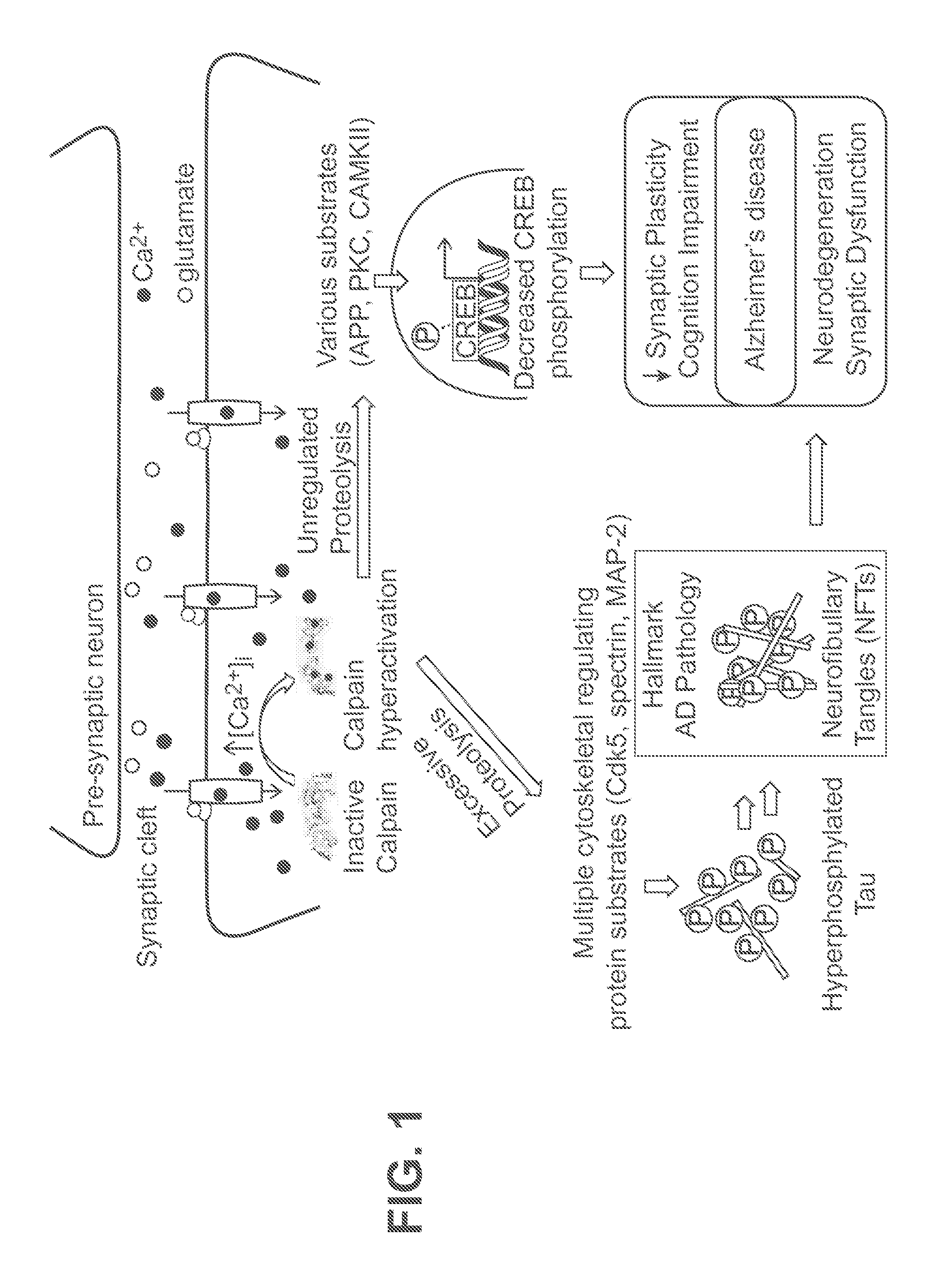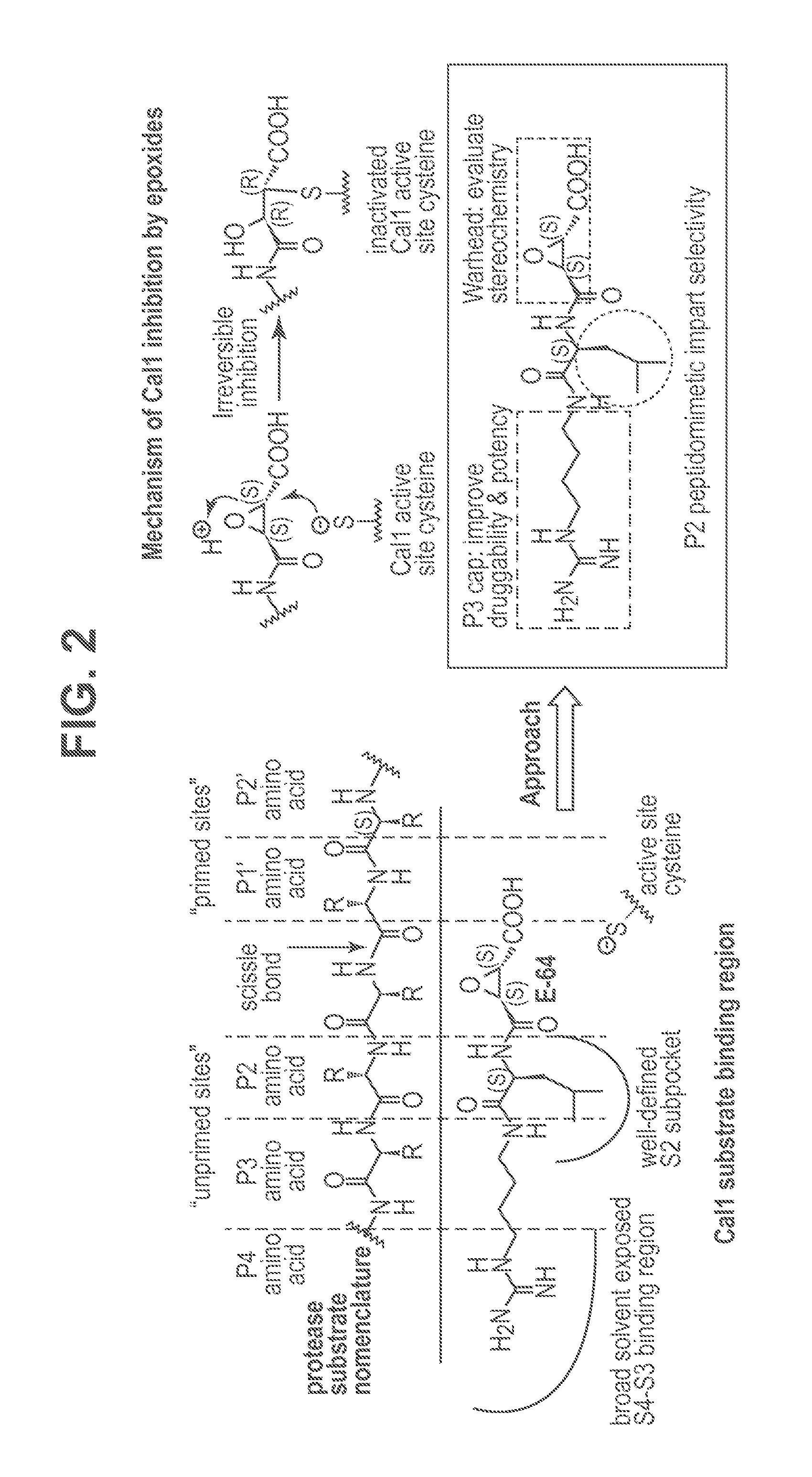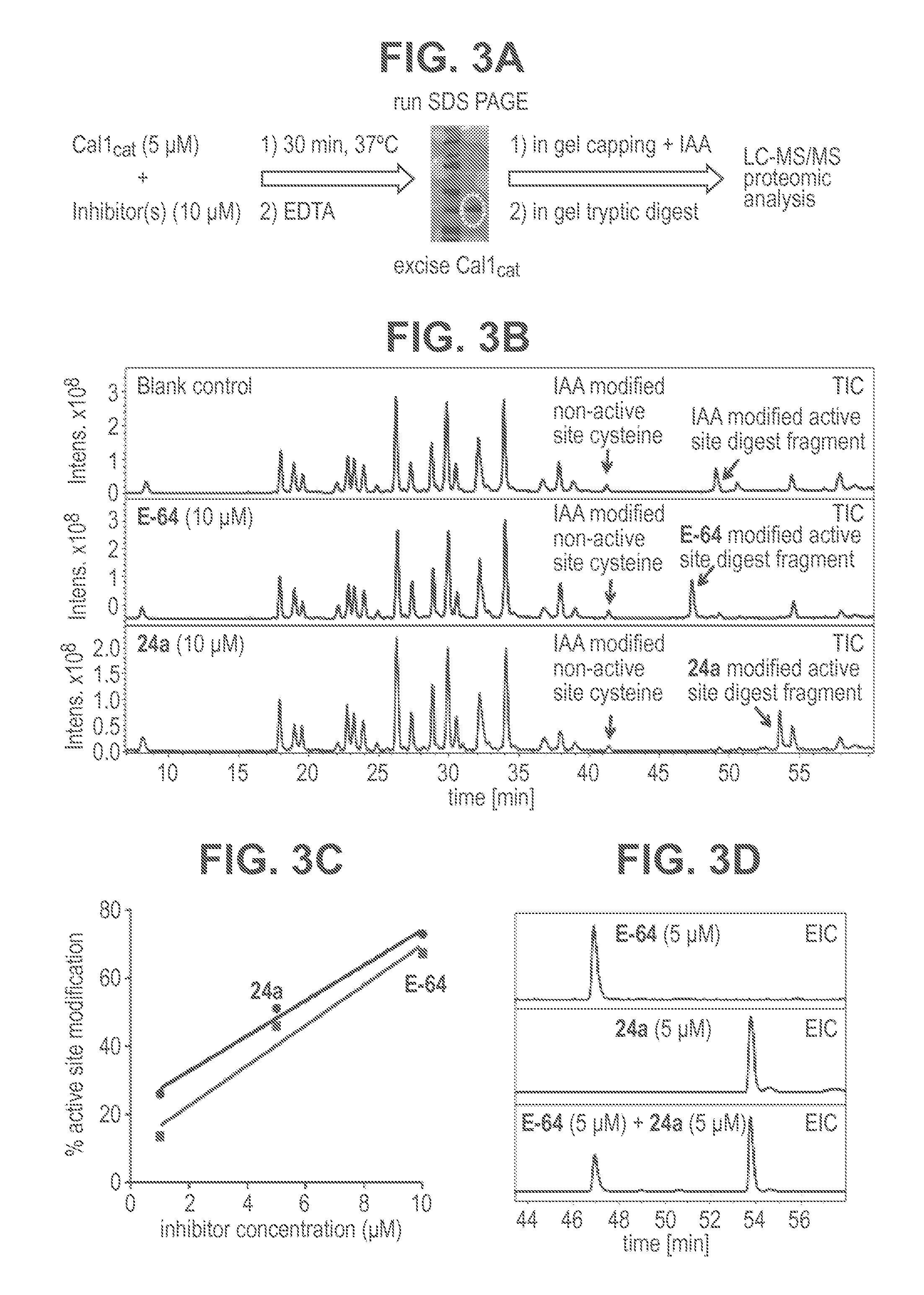Cysteine protease inhibitors and uses thereof
a technology of cysteine protease and inhibitors, which is applied in the field of cysteine protease inhibitors, can solve the problems of unregulated proteolysis, exacerbation of pathological conditions, and wide spread of calpain activation, so as to improve synaptic function, improve memory, and increase long-term potentiation
- Summary
- Abstract
- Description
- Claims
- Application Information
AI Technical Summary
Benefits of technology
Problems solved by technology
Method used
Image
Examples
example 1
Selection of Epoxides
[0250]Several novel compounds were initially synthesized and observed to be stable towards reaction with free thiols and to provide Cal 1 inhibitors with sub-micromolar potency. A set of 45 epoxides was synthesized and assayed for inhibition of Cal1 (to select compounds with an IC50rd a generation of inhibitors, a synthesis was developed to allow diversification of the P3 recognition group using click chemistry. Several compounds were screened in silico using a combination of docking scores to multiple Cal1 crystal structures and a geometric parameter associated with the transition state for covalent modification. This QSAR analysis gave Nsig values, from which inhibitors were selected for synthesis and enzyme assay. Compounds predicted to be poor inhibitors yielded high IC50 values, whereas 4 of the 5 compounds with high Nsig values were sub-micromolar inhibitors.
example 2
Synthetic Methods
[0251]Unless stated otherwise, all reactions were carried out under an atmosphere of dry argon in oven-dried glassware. Indicated reaction temperatures refer to those of the reaction bath, while room temperature (rt) is noted as 25° C. Dichloromethane (CH2Cl2) was distilled over CaH2, and THF distilled over Na(s). All other solvents were of anhydrous quality purchased from Aldrich Chemical Co. and used as received. Pure reaction products were typically dried under high vacuum in the presence of phosphorus pentoxide. Commercially available starting materials and reagents were purchased from Aldrich, TCI and Fisher Scientific and were used as received unless specified otherwise. Analytical thin layer chromatography (TLC) was performed with (5×20 cm, 60 Å, 250 μm). Visualization was accomplished using a 254 nm UV lamp. 1H and 13C NMR spectra were recorded on either a Broker Avance 400 MHz spectrometer or Bruker DPX 400 MHz spectrophotometer. Chemical shifts are reporte...
example 3
Calpain Inhibition by 1st Generation Inhibitors: P3 / P4 Cap Group Selection
[0341]Calpain activity was measured using full-length human Cal1 in the presence of a FRET substrate. IC50 values were approximated by co-incubation of varying concentrations of the appropriate inhibitor (10, 100, 500, 1000 nM) in the presence of the FRET substrate (DABCYL)TPLK-SPPSPR-(EDANS) (SEQ ID NO: 5) and activation buffer. Fluorescence was measured following a 20 min incubation and % inhibition calculated by normalizing to control experiments containing no inhibitor. A peptide inhibitor, Z-LLY-FMK (SEQ ID NO: 6), was used as a positive control. In the case of potent inhibitors, the concentration-response was extended to include 1, 10, 50, 100, 250, and 500 nM inhibitor.
[0342]
TABLE 2Epoxysuccinate structures and inhibition data.RelativeLD50 ≧selectivity50 μMCal Ifor Cal IprimaryNoStructureIC50E64 = 1.0fneurons59>1 μM26150 nM1.6YESE64100 nM1.0YES27150 nM60>1 μM61~1 μM0.3YES62>1 μM63>1 μM25100 nM0.9YES6465...
PUM
| Property | Measurement | Unit |
|---|---|---|
| temperature | aaaaa | aaaaa |
| temperature | aaaaa | aaaaa |
| pH | aaaaa | aaaaa |
Abstract
Description
Claims
Application Information
 Login to View More
Login to View More - R&D
- Intellectual Property
- Life Sciences
- Materials
- Tech Scout
- Unparalleled Data Quality
- Higher Quality Content
- 60% Fewer Hallucinations
Browse by: Latest US Patents, China's latest patents, Technical Efficacy Thesaurus, Application Domain, Technology Topic, Popular Technical Reports.
© 2025 PatSnap. All rights reserved.Legal|Privacy policy|Modern Slavery Act Transparency Statement|Sitemap|About US| Contact US: help@patsnap.com



